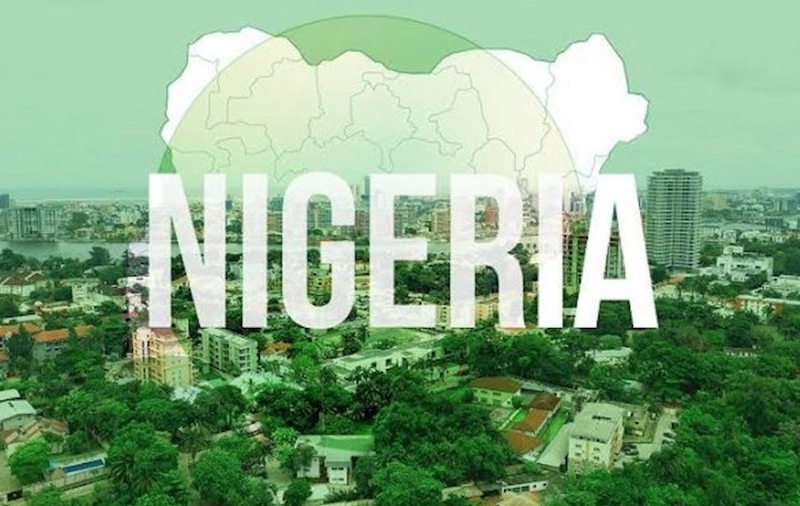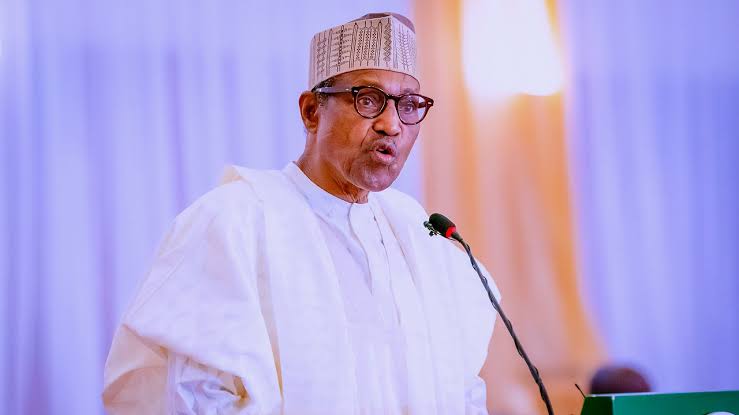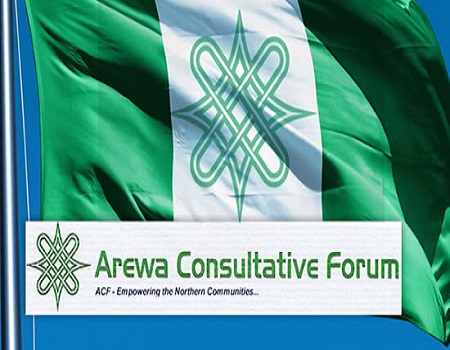…insists Petrol subsidy no longer sustainable
As President Muhammadu Buhari prepares to finally take a bow from the administration of Nigeria in less than 150days, read twelve takeaways from his last budget speech.
On power generation:
“We have transformed Nigeria’s challenging power sector, through bespoke interventions such as the Siemens Power Program, with the German government under which over 2 billion US Dollars will be invested in the Transmission Grid.
“We have leveraged over billions of US dollars in concessional and other funds from our partners at the World Bank, International Finance Corporation, African Development Bank, JICA as well as through the Central Bank of Nigeria, working with the Finance Ministry, to support the power sector reforms.
On transformational investments in Infrastructure:
*Establishing the Infrastructure Corporation of Nigeria (‘InfraCorp’), in 2021, seed capital of N1 trillion from the Central Bank of Nigeria (‘CBN’), the Nigeria Sovereign Investment Authority (‘NSIA’) and the Africa Finance Corporation (‘AFC’);
* Leveraging finance through the NSIA into the Presidential Infrastructure Development Fund (‘PIDF’) to facilitate the accelerated completion of the Second Niger Bridge, Lagos-Ibadan Expressway and Abuja-Kano Road;
*Through the Road Infrastructure Tax Credit Scheme pursuant to Executive Order #7 of 2019, incentivised responsible companies to invest billions of Naira in constructing over 1,500km critical roads in key economic corridors. Under this Scheme, the Dangote Group has substantially completed the Reconstruction of 34km Apapa-Oworonshoki-Ojota Expressway and the 43km Obajana-Kabba Road. Similarly, Nigeria LNG Limited is on track to complete the 38km Bodo-Bonny Road and Bridges Project by the end of 2023;
*Under our Sukuk Bonds scheme, since 2017, over N600 billion has been raised and invested in 941km for over 40 critical road projects nationwide, complement the Ministry of Works and Housing’s Highway Development and Management Initiative and other interventions;
*Investing significantly to restore our national railways, completing and commissioning the 156km Lagos-Ibadan Standard Gauge Rail (and its 8.72km extension to Lagos Port); the 186km Abuja-Kaduna Standard Gauge Rail; and 327km Itakpe-Warri Standard Gauge Rail. These completed projects complement our ongoing investments in Light Rail, Narrow and Standard Gauge Rail, Ancillary Facilities Yards, Wagon Assembly Plants, E-Ticketing infrastructure as well as the training and development of our rail engineers and other workers;
* We have completed New Airport Terminals at Lagos, Abuja, Kano and Port Harcourt, and reconstructed the Abuja Airport Runway in its first overhaul since its construction in the early 1980s.
*Other investments in airports safety facilities, aeronautical meteorological services delivery complement ongoing development of seaports and ancillary infrastructure at the Lekki Deep Sea Port, Bonny Deep Sea Port, Onitsha River Port, as well as the Kaduna, Kano and Katsina Inland Dry Ports to create a truly multimodal transport system;
We have transformed Nigeria’s challenging power sector, through bespoke interventions such as the Siemens Power Program, with the German government under which over 2 billion US Dollars will be invested in the Transmission Grid.
Intervention on National grid:
* The Central Bank has also been impactful in its interventions to roll out over a million meters to on-grid consumers, creating much needed jobs in assembly and installation. Our financing interventions have recently been complemented with the takeover of four electricity distribution companies and the constitution of the Board of the Nigeria Electricity Liability Management Company.
On generation:
* On the generation side, we have made significant investments in and incremental 4,000MW of power generating assets, including Zungeru Hydro, Kashimbila Hydro, Afam III Fast Power, Kudenda Kaduna Power Plant, the Okpai Phase 2 Plant, the Dangote Refinery Power Plant, and others.
* Our generation efforts are making the transition from a reliance on oil and diesel, to gas as a transitional fuel, as well as environmentally friendly solar and hydro sources. Under the Energising Education Programme, we have commissioned solar and gas power solutions at Federal Universities and Teaching Hospitals at Kano, Ebonyi, Bauchi and Delta States. Similarly, our Energising Economies Programme have taken clean, sustainable power solutions to the Sabon-Gari Market in Kano, Ariaria Market in Aba, and Sura Shopping Complex in Lagos.
On governance:
* In terms of Good Governance, one significant challenge this Administration met at our inception was the inability of successive Governments to institutionalise reforms to ensure their sustainability. We inherited an archaic set of corporate, banking and capital markets laws; draft but unenacted Bills to reform the critical petroleum sector; an unimplemented Oronsaye White Paper to reform our civil service, amongst others.
On Corporate Financial laws:
*Critical corporate and financial laws to enhance our countries’ global competitiveness, including the repeal and re-enactment of Companies and Allied Matters Act (‘CAMA’) 2020 – the first comprehensive reform since 1990; enacting the Federal Competition and Consumer Protection Commission (FCCPC) Bill, the first legislation in Nigeria’s history focused on curbing anti-competition practices; establishing the Federal Competition and Consumer Protection Commission; re-pealing and re-enacting the Banks and Other Financial Institutions Act (BOFIA) 2020; enacting the Asset Management Corporation of Nigeria, AMCON (Amendment) Acts of 2019 and 2021; enacting the Credit Reporting Act (CRA) 2017 and Secured Transactions in Movable Assets Act (STMAA) 2017, to mention our major legislative interventions;
* Fundamental anti-corruption, anti-money laundering and financial intelligence laws, such as the Nigeria Police Act, 2020 (being the first comprehensive reform of Police legislation since the Police Act of 1943); the Nigerian Financial Intelligence Unit Act 2017 (which resolved the longstanding impediments to Nigeria’s full participation in the global efforts to combat illicit financing of terrorism and crime under the auspices of the global Egmont Group); the Money Laundering (Prevention and Prohibition) Act, 2022; the Terrorism (Prevention and Prohibition) Act 2022, Proceeds of Crime (Recovery and Management) Act, 2022; Mutual Assistance in Criminal Matters Act, 2019; Nigerian Correctional Services Act, 2019; Suppression of Piracy and other Maritime Offences Act, 2019; amongst others.
*Historic reforms to our Constitutional and other public laws, including the first ever amendments to the Constitution of the Federal Republic of Nigeria to support the engagement of young persons in our politics by passing Not Too Young to Run legislation, as well as to improve the funding and independence of States’ Legislatures and Judiciaries; enacting overdue reforms through the Electoral Act, 2022.
On PIA:
The Petroleum Industry Act, 2021 after close to two decades of drafting, debates and delays – leading to the commercialization of NNPC Limited, and other much needed reforms to our energy sector. This important law also complements other landmark legislations such as the Deep Offshore and Inland Basin Production Sharing Contracts Act, 1993 (Amendment) Act, 2019, to increase oil and gas revenues accruing to the Federation;
*Enacting annual Finance Acts of 2019, 2020 and 2021 to support our annual Budgets and respond to emerging tax, fiscal and economic issues, including:
I. reducing headline corporate tax rates for Small and Medium-Sized Enterprises;
II. reforming archaic tax legislation in line with global best practices to combat Base Erosion and Transfer Pricing;
III. reforming the taxation of securities lending and real estate investment trusts to spur increased investments on our capital markets;
IV. empowering the Federal Inland Revenue Service and the Nigeria Customs Service to optimize their use of technology to more efficiently collect taxes and levies; and
V. increasing VAT revenues predominantly to support our States and Local Governments’ precious finances during and after the impact of the COVID-19 Pandemic on the economy.
Promotion of Transparency in Business:
Furthermore, we have issued eleven Presidential Executive Orders on a range of important issues, including the Promotion of Transparency and Efficiency in the Business Environment, 2017;
I. Promoting Local Procurement by Government Agencies, 2017;
II. the Submission of Annual Budgetary Estimates by all Statutory and non-Statutory Agencies, including Incorporated Companies wholly owned by the Federal Government of Nigeria, 2017;
III. the Voluntary Assets and Income Declaration Scheme, 2017;
IV. Planning and Execution of Projects, Promotion of Nigerian Content in Contracts, Science, Engineering and Technology, 2018;
V. the Voluntary Offshore Assets Regularization Scheme (VOARS), 2018;
VI. Open Defecation and enhanced sanitation, 2019;
VII. the innovative Road Infrastructure Development and Refurbishment Investment Tax Credit Scheme, 2019; and
VIII. the National Public Buildings Maintenance, 2022.
ON RECENT ECONOMIC DEVELOPMENTS:
*The 2023 Budget was prepared amidst a very challenging world economy that is weakened by the lingering effects of the COVID-19 pandemic, high inflation, high crude oil prices resulting in huge cost of PMS Subsidy and negative spill over effects of the Russia-Ukraine war.
* Many economies around the world are currently contending with fiscal instability, slow growth, food crisis, and high interest rates. Like many other countries, our economy faces headwinds from low revenues, high inflation, exchange rate depreciation and insecurity.
*However, Nigeria’s real Gross Domestic Product grew by 3.54 percent in the second quarter of 2022, marking the seventh consecutive quarter of growth. Our interventionist and reflationary measures have been very effective and impactful. We must however continue to work towards achieving much higher levels of growth, especially given our high population growth rate, so that the average Nigerian can truly feel the impact of planned economic growth.
On oil output:
Oil output stood at an average of 1.30 million barrels per day as at June 2022, while the sum of 1.59 trillion Naira was spent on fuel subsidy between January and June 2022. The NNPC, working in collaboration with security and other relevant agencies, is putting in place additional measures to curb the incidence of pipeline vandalism and crude oil theft in order to meet our crude oil production quota.
*On the expenditure side, the sum of 8.29 trillion Naira had been spent by July 31 2022 out of the total appropriation of N17.32 trillion. Despite our revenue challenges, we have consistently met our debt service commitments. Staff salaries and statutory transfers have also been paid as and when due.
On Debts:
* Total non-debt recurrent expenditure in January to July 2002 was 3.24 trillion Naira, of which 2.87 trillion Naira was for Salaries, Pensions and Overheads. A total of 3.09 trillion Naira was spent on debt service obligations during the period.
*Furthermore, about 1.48 trillion Naira had been released to MDAs for capital expenditure as at the end of July 2022. I am pleased to inform you that we expect to fund MDAs’ capital budget fully by the end of the fiscal year 2022.
To further address structural problems in the economy and drive growth, capital releases thus far have been prioritised in favour of critical ongoing projects in the power, roads, rail, agriculture, as well as health and education sectors.
As at the end of July 2022, the fiscal operations of the Federal Government resulted in an estimated budget deficit of 4.63 trillion Naira. This represents 63 percent of the estimated deficit for the full year. This is largely attributable to revenue shortfalls and higher debt service obligations resulting from rising debt levels and interest rates.
The deficit was mainly financed through domestic borrowing amounting to N4.12 trillion. Hence, total public debt stock increased from 39.6 trillion Naira as at the end of December 2021 to 42.8 trillion Naira as at the end of June, 2022.
*However, our debt position remains within cautious and acceptable limits compared to peer countries. As at the end of June 2022, total public debt is within our self-imposed limit of 40 percent of GDP, which is significantly below the 55 percent international threshold for comparator countries, and a global average of 99 percent post-COVID-19.
*Nonetheless, our debt-service-to-revenue ratio needs close attention. The current low revenue performance of government, as reflected in the lowly revenue-to-GDP ratio of just about 8 percent. Our medium-term objective remains to raise this ratio to 15 percent, at which the debt service to revenue ratio will cease to be a concern.
The 50 percent cost-to-income ratio in the Finance Act 2020 has significantly improved operating surplus remittances by Government Owned Enterprises (GOEs). I therefore solicit the continuing cooperation of the National Assembly in enforcing the legal provision and other prudential guidelines imposed on the GOEs during the consideration of the budget proposals of the GOEs.
Petrol subsidy:
Petrol subsidy has been a recurring and controversial public policy issue in our country since the early eighties. However, its current fiscal impact has clearly shown that the policy is unsustainable. As a country, we must now confront this issue taking cognizance of the need to provide safety nets to cushion the attendant effects on some segments of society.




